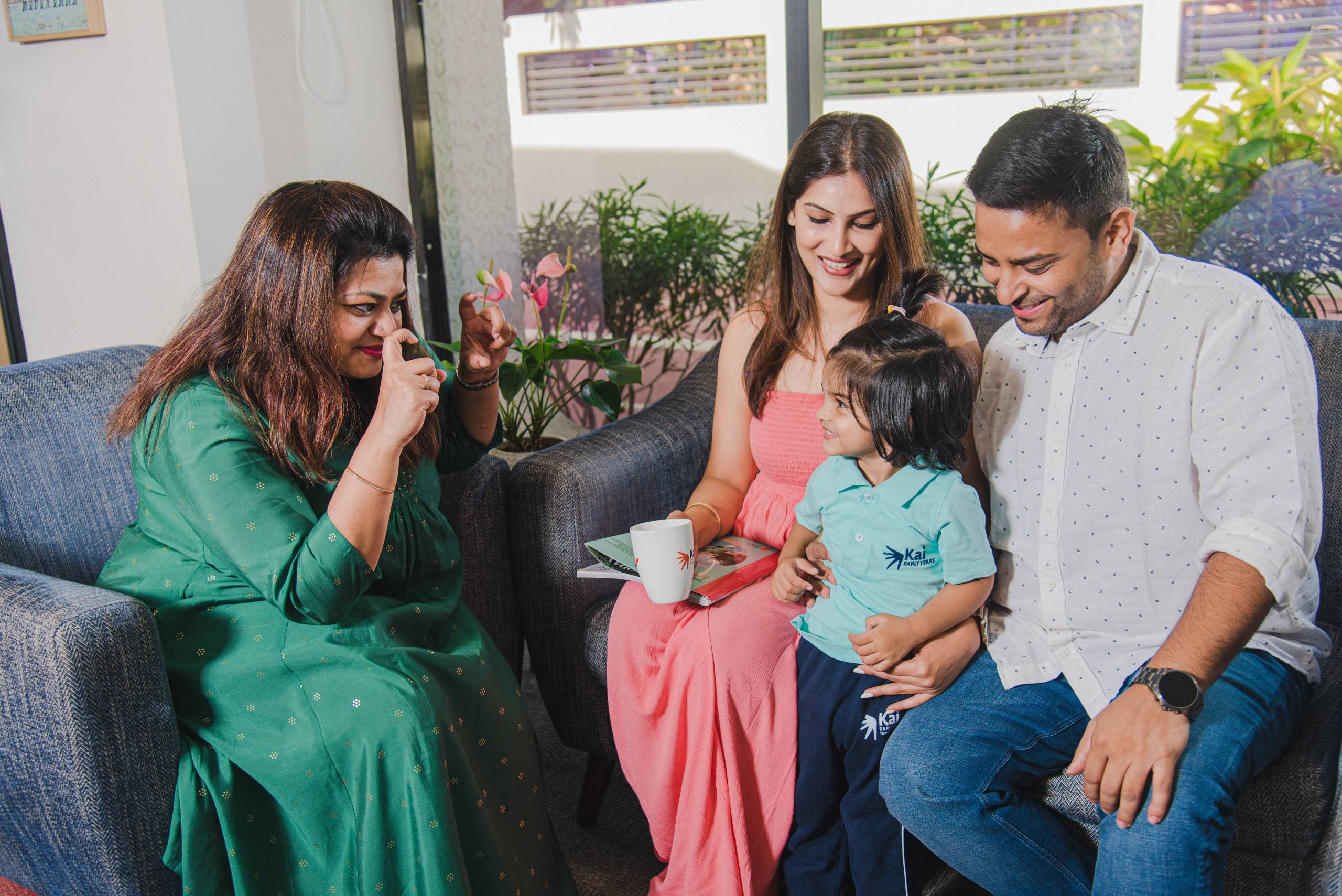Parenting Styles Demystified: Finding Your Balance
Parenting is one of the most challenging and rewarding experiences in life. Every parent wants the best for their child, but determining the most effective way to raise them can be daunting. Sending them to the Best Daycare in Bangalore or to one of the Leading Preschools in Whitefield is one option, but as the child spends a majority of the day at home, parenting is also crucial. Fortunately, psychologists have identified various parenting styles that provide a framework for understanding how different approaches can impact children’s development and behaviour.
Your parenting style plays a crucial role in shaping your child’s self-esteem, academic success, and overall well-being. It influences how you interact with your child, how you discipline them, and ultimately, how they perceive themselves and the world around them. Let’s delve into the four main parenting styles identified by researchers and explore their characteristics, effects on children, and tips for finding your own parenting style.
1. Authoritarian Parenting
Authoritarian parents are known for their strict rules, high expectations, and emphasis on obedience. They prioritize discipline and control, often enforcing rules without considering their child’s opinions or feelings. Authoritarian parents tend to use punitive discipline methods and may struggle with fostering open communication with their children.
Good Effects: Children raised in authoritarian households may exhibit disciplined behavior and respect for authority figures. They often excel in structured environments and may perform well academically due to high parental expectations.
Bad Effects: However, these children may struggle with social skills and independence. They may experience low self-esteem and have difficulty expressing their emotions or making decisions without external direction.
2. Permissive Parenting
Permissive parents are lenient and indulgent, prioritizing warmth and freedom over discipline and structure. They have few rules and expectations, allowing their children considerable autonomy in decision-making. Permissive parents may avoid conflicts and consequences, often acting more like friends than authoritative figures.
Good Effects: Children of permissive parents may feel a strong sense of freedom and independence. They often have close relationships with their parents and may be creative and expressive due to the lack of strict rules.
Bad Effects: Yet, these children may struggle with self-discipline and may exhibit behavioral problems. They might find it challenging to respect authority figures and may experience difficulties with academic performance and responsibility.
3. Authoritative Parenting
Authoritative parenting is often considered the “gold standard” of parenting styles. It balances warmth and structure, providing clear rules and expectations while also nurturing children’s independence and individuality. Authoritative parents value open communication, reasoning, and positive discipline techniques.
Good Effects: Children raised with authoritative parenting tend to be well-rounded individuals. They are confident, socially adept, and academically successful. They have strong self-esteem and decision-making abilities, stemming from the supportive yet structured environment provided by their parents.
Bad Effects: Despite its benefits, authoritative parenting may sometimes lead to stress or pressure to meet high expectations. In rare cases, children may feel overly controlled or struggle with anxiety if the balance between warmth and structure is not maintained effectively.
4. Uninvolved Parenting
Uninvolved or neglectful parents are emotionally distant and provide minimal guidance and support to their children. They may neglect their child’s basic needs, lack involvement in their lives, and fail to establish rules or boundaries. Uninvolved parents may be overwhelmed by personal challenges or unaware of their child’s needs.
Good Effects: It’s challenging to identify many positive effects of uninvolved parenting. In some cases, children may develop self-reliance and independence out of necessity, learning to navigate the world largely on their own.
Bad Effects: However, the negative effects of uninvolved parenting are profound. Children may suffer from emotional neglect, leading to a range of issues such as low self-esteem, behavioral problems, and difficulties forming healthy relationships. They may also struggle academically due to a lack of support and guidance. Overall, uninvolved parenting poses significant risks to a child’s emotional, social, and cognitive development.
Finding Your Parenting Style
Discovering your parenting style is a personal journey that requires self-reflection, adaptability, and a focus on your child’s well-being. Here are some key considerations to help you find your parenting style:
• Self-Reflection and Assessment: Evaluate your beliefs, values, and parenting goals. Consider your disciplinary methods, communication style, and expectations for your child’s behavior and development.
• Combining Different Styles:Recognize that parenting styles exist on a spectrum, and you may incorporate elements from different styles based on your child’s needs and temperament. Strive to find a balance between warmth and structure in your approach.
• Adapting Over Time: As your child grows and develops, be prepared to adapt your parenting style accordingly. Stay attuned to their changing needs, and adjust your strategies to support their growth and independence.
• Prioritizing Your Child’s Well-Being: Above all, prioritize your child’s happiness, health, and development in your parenting journey. Maintain open communication, seek support when needed, and focus on fostering a loving and supportive relationship with your child.
Conclusion
Understanding the different parenting styles and their effects on children can empower you to make informed decisions about your approach to parenting. By reflecting on your values, adapting to your child’s needs, and prioritizing their well-being, you can cultivate a nurturing and supportive environment that promotes their healthy development and success in life. Whether you’re looking for the Best Daycare in Bangalore or considering leading preschools in Whitefield, keeping your child’s needs at the forefront of your decision-making will help you find the right balance in your parenting journey.

